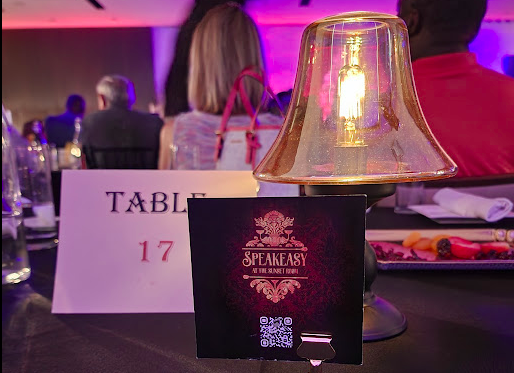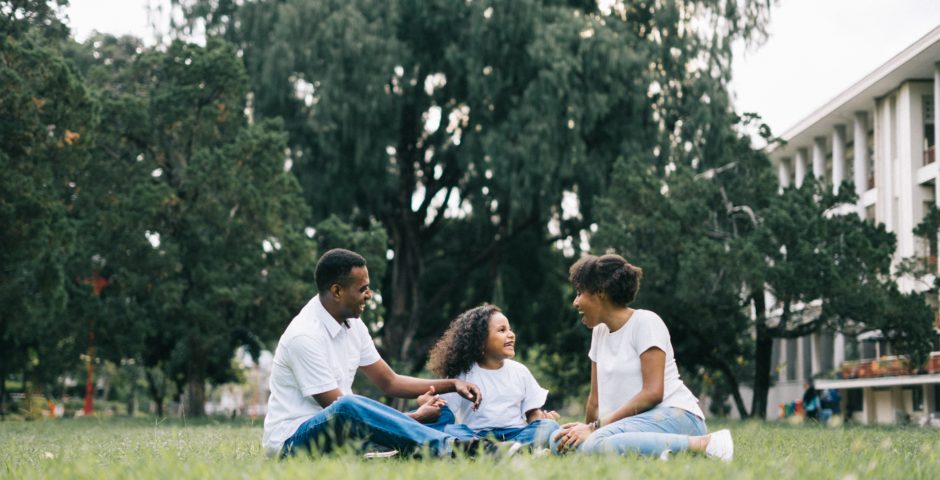Beyond Otiko: Thoughts on Rape, Responsibilities and Roles
In Matthew 11:15, Jesus spoke to the multitude of all the prophecies concerning John the Baptist and the fulfillment of the law. He exhorted those who had gathered in his presence saying, “He who has ears, let him hear!” I interpret the tone of the phrase as coming from a man who was weary of repeating himself on an issue that should have been done and settled, given the remarkable life John had led…the fruits of which the people had had the opportunity to witness. Nevertheless, and despite the signs and wonders and evidence, there were still those who doubted the word of the Lord regarding his mission to fulfill the law and John’s mandate to prepare the way. They rejected the call to repentance. The people did not have ears to hear because they were wedded to the old information they had been indoctrinated with. They were dumb to the truth for no other reason than they could not bear to open themselves up to the possibility that their belief system was flawed.
So it is with many philosophies that guide our lives. So it is also with our beliefs about rape. Who has an ear to hear?
Fresh off the heels of her troubling remarks at a Speech and Prize Giving Day at an all girls’ high school, Otiko Djaba Minister for Gender, Children and Social Protection went on to double down on her position wherein she drew a correlation between attire and incidents of rape, despite the fact that research and evidence show the contrary. Studies show that the cultures with the most rigid views and laws that police women’s bodies have the highest incidents of rape, globally. Furthermore, a 2013 United Nations-funded survey of more than 10,000 men, the most common reasons for rape included sexual entitlement, seeking of entertainment and as a punishment. Masculinity, dominance over women and participation in gangs were noted as associated factors in the report. This is in direct contradiction to the to the advice was giving as mother to her children and that she was speaking to her “sisters and children”.
I’m a mother as well, and this is neither information for advise that I would ever give my children – male or female – because it reinforces stereotypes about a woman’s worth and the clothing choices she makes day by day. It is “advice” that serves as an excuse to absolve men of their responsibility for the crime that is rape and sexual assault. And thirdly, it ignores the real reason men…and women prey on victims. They do it because they CAN.
 This matter goes beyond Otiko Djaba, a woman who won early praise for her confidence and her unbending position on issues under her purview. The world needs more confident women in positions of power; however there is a point where confidence becomes conceit. Otiko Djaba is teetering dangerously close to the latter, and there is no room for vain gloriousness in a ministry charged with the protection of children. If one has erred, one must seek wisdom, regroup and be prepared to do better in the future. Otiko Djaba has shown no indication that she’s prepared to take any of these steps, the consequences of such failure will have negative repercussions that ripple throughout the culture. She says she is pleased that her utterances have “sparked a conversation about who we are”, but that’s where her imagination stops. Ghanaians are always talking about who we are. At what point do we begin talking about who we want to become?
This matter goes beyond Otiko Djaba, a woman who won early praise for her confidence and her unbending position on issues under her purview. The world needs more confident women in positions of power; however there is a point where confidence becomes conceit. Otiko Djaba is teetering dangerously close to the latter, and there is no room for vain gloriousness in a ministry charged with the protection of children. If one has erred, one must seek wisdom, regroup and be prepared to do better in the future. Otiko Djaba has shown no indication that she’s prepared to take any of these steps, the consequences of such failure will have negative repercussions that ripple throughout the culture. She says she is pleased that her utterances have “sparked a conversation about who we are”, but that’s where her imagination stops. Ghanaians are always talking about who we are. At what point do we begin talking about who we want to become?
Really, do we want to be a nation that raises weak-minded men and timid women neither of whom can trust themselves or each other, or are we going to strive for a time where we grow in strength, character and co-operation? At some point, we must eschew this dogged pursuit of mediocrity that is guiding the nation – and its citizens – to ruin, and pursue a course of enlightenment. That begins in large part with listening…something as a culture we fail abysmally at.
In preparing to write this post, I was compelled to review global statistics on rape, as well as the myriad circumstances under which rape occurred. I also took the opportunity to talk to a few members of a demographic that goes largely ignored whenever the topic of rape and victims comes up: African men.
Contrary to what those in moral authority would have us believe, rape seldom has anything to lust or failure to control it. Rape is a weapon – a tool to exert dominance and control over a person whom one considers inferior. It’s been an effective method to demoralize one’s enemies during times of war and unrest. When the Janjaweed went on a violent genocidal rampage through Darfur, part of their strategy included rape with the aim of ethnic cleansing. It was methodical and intentional and had nothing to do with the length of the skirt of any woman in the region. South Africa currently holds the record for the highest number of reported rapes (an average of 500,000 cases a year), crimes that include corrective rape (i.e. a sick attempt to turn same gender loving women straight), gang rape, baby rape and rape of the elderly. Consider also the case of Theo, the Black youth worker in France who was violently sodomized with a baton during a police baton…a rape that the unit deemed an “accident”. Rape is about humiliation and control, not lust and desire. Let those who have ears hear and understand that rape is a very black and white issue. Without the element of consent, any sexual contact with another human being is considered an assault, and using “provocative attire” as an excuse is no excuse at all. Do you know how many drivers provoke me on the road with their incompetence? Is a failure to yield then an excuse for me to get out of my car and grab ‘em in the crotch?
The frustrating part remains that there is no definitive demarcation for what falls under the category of rape. There is no uniformity. Under federal definitions of rape, Brock Turner would have received a much longer and harsher sentence. However the jurisdiction in which he was tried defines rape as penal penetration. Turner violated his incapacitated victim with his fingers and was released within mere months. There needs to be uniformity in the definition of rape if we are to get true justice for victims. Having a standard will also eliminate confusion for those people who cannot wrap their heads around the idea of consent.
But back to the Gender Minister and Black and African men.
There is a group of men who live with silent and suppressed guilt and shame. They are fathers and husbands and by all accounts live normal lives. You know them. You may even be one of them. They go to work, maintain relationships, discuss current events with bravado and so on. But if you have the opportunity to have an honest conversation with these men, a fair number will admit that their first sexual encounter(s) were not consensual or that they had an acquaintance whose first encounter was coerced in some way.
“I would not say the first time I had sex, ‘I’ was having sex,” one man explained. “I would say sex was being done to me.”
“My mother used to leave me with the house help when I was 7 or 8 years old. As soon as my mom would leave she would pull my pants down and start sucking my penis,” said another.
“I know several of my friends who used to have sex with their baby sitters.” He continued with a smile, “But you know…when you’re 10 years old, you think that’s great!”
“By the time I was 12, all of my friends had had sex…and it wasn’t with someone our own age. It was usually an older woman.”

*source apa.org
My son turns 8 in May, and I can’t imagine someone touching him this way. It moves me to violence just to think about it. So what makes the Minister for Gender, Children and Social Protection’s utterances so shocking is not the content itself, but rather the source. To be so willfully obtuse about an issue that has so much breadth and depth – an ignored portion of which can be uncovered in the span of 30 minutes if you would just take the time – is not befitting of someone in that role. Madam Djaba likes to talk a lot about rights and responsibilities, but I think it would behoove us all if she spoke more about her responsibilities in her role. The misogynist in the street can almost be forgiven for his ignorance. She cannot be. Her statement that girls attract unwanted attention and rape is one laced in violence, and we cannot have a ministry guided and staffed by people who permit and excuse violence against any segment of society and then advocates that victims look inward to see what part they played in their own victimization. That goes for Ghana. That goes for anywhere.
People (men) often ask why rape is such an “emotional” topic for us. Invariably, someone will patronizingly advise us to calm down during the course of the conversation. This powerful scene from the Netflix series Luke Cage accurately depicts to sort of baseline rage that survivors of sexual abuse carry with them. See what happens to Cottonmouth after he accuses his cousin of “wanting it”.
https://m.youtube.com/watch?v=S9ghDB5Wri8
A true “mother and sister” would recognize that there are a lot of injured people of both genders walking around in broad day light, trying to do the best they can while managing the burden of violation. They would listen, and then take than information to implement real solutions. A true “brother and father” would do the same. It’s time to start addressing perpetrators of rape and stop diverting responsibility onto the victims because it’s easier and those charged with protection are too lazy to do otherwise. We need someone who is going to be a voice in the wilderness, who will speak to those who have an ear to hear and carry a fresh word into their communities. And if that task too difficult for her, then Otiko Djaba is not the mother we need.




